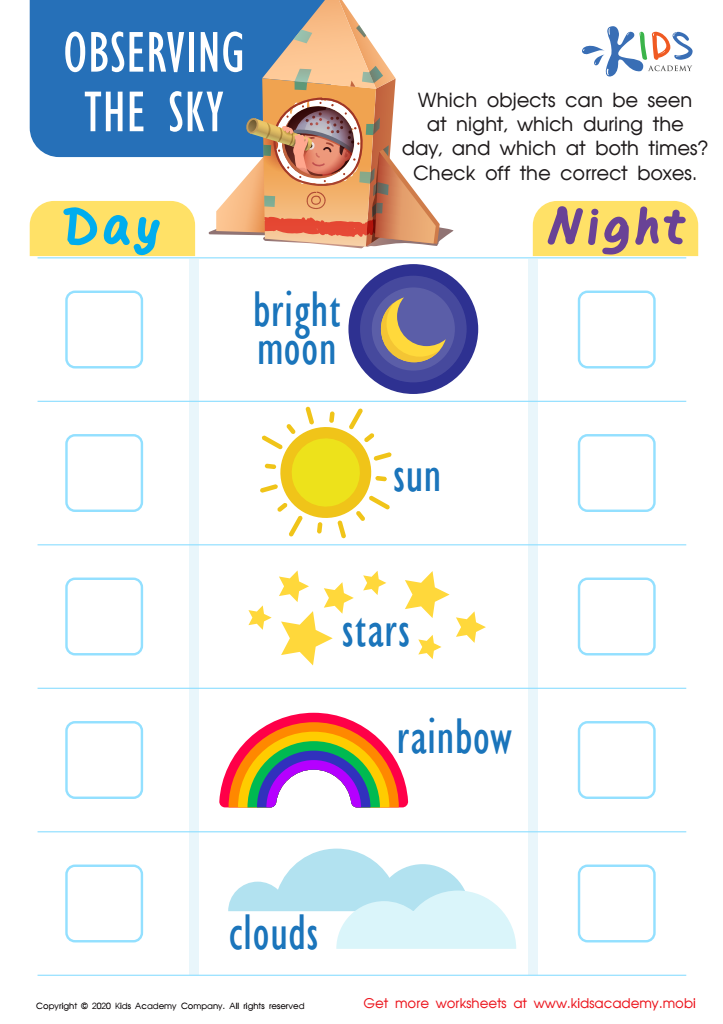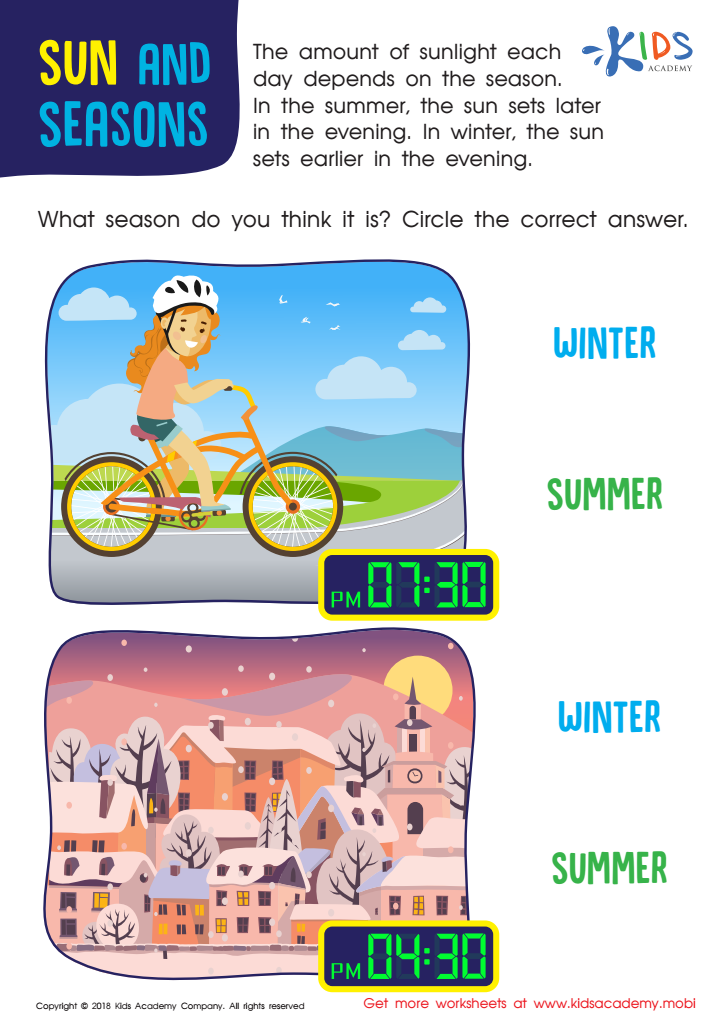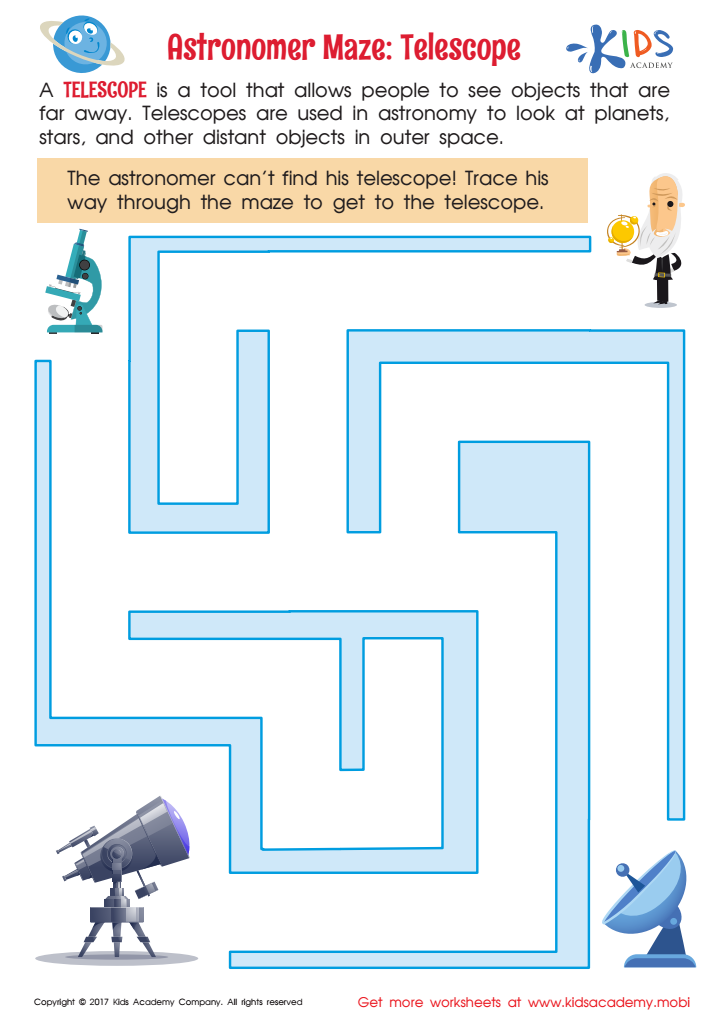Basic astronomy knowledge Worksheets for Ages 7-9
3 filtered results
-
From - To
Explore the wonders of the universe with our Basic Astronomy Knowledge Worksheets tailored for ages 7-9! Our engaging and educational resources introduce young learners to key astronomical concepts, from the solar system and constellations to the phases of the moon and the mysteries of the stars. Designed to spark curiosity and enhance comprehension, each worksheet is crafted to blend fun activities with informative content, making learning an exciting adventure. Boost your child's astronomical understanding and inspire a lifelong love for science with these interactive and printable worksheets from Kids Academy. Let the cosmic journey begin!


Observing the Sky Worksheet


Sun and Seasons Worksheet


Astronomer Maze: Telescope Worksheet
Introducing basic astronomy knowledge to children aged 7-9 has several vital benefits that make it important for both parents and teachers to prioritize. First, astronomy stimulates curiosity and inspires a sense of wonder about the universe, encouraging children to ask questions and seek answers. This curiosity fuels critical thinking and scientific inquiry, foundational skills in all areas of learning.
Second, understanding basic astronomy concepts such as the day-night cycle, the phases of the moon, and the relation between Earth and other celestial bodies can help children grasp more complex scientific concepts later. It serves as an excellent gateway to other areas of science, including physics and environmental science.
Additionally, learning about space expands a child's perspective and understanding of Earth’s place in the universe. This broader outlook can foster a sense of global citizenship and responsibility towards the planet. For instance, understanding how Earth is unique in its ability to support life can inspire care for the environment.
Finally, studying astronomy encourages the use of imagination and creativity. It involves story-telling about constellations and myths, as well as getting hands-on with telescope observations or DIY planetary models. These activities make learning engaging and fun, nurturing a lifelong passion for discovery. Therefore, a foundation in basic astronomy is not just an academic endeavor but a means to holistic development.

 Assign to the classroom
Assign to the classroom












